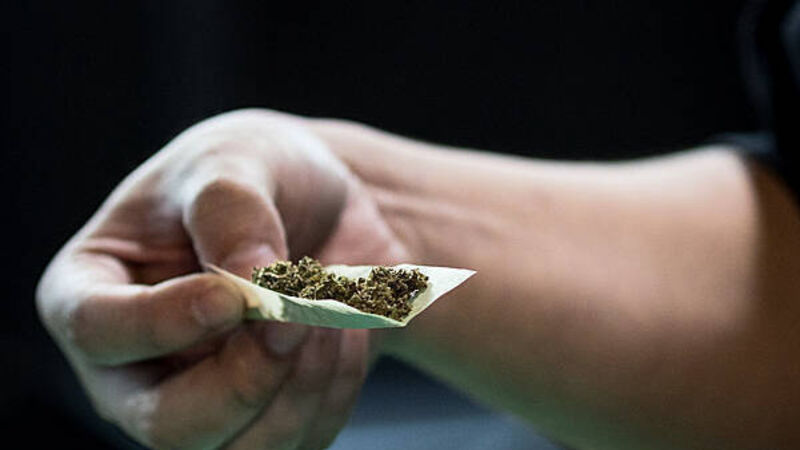Cannabis-induced psychosis in teens: 'Parents need to educate themselves'

Eva Osborne
Irish parents of teenagers must educate themselves on the impacts of cannabis, according to a professor of psychiatric epidemiology and youth mental health at the Royal College of Surgeons in Ireland (RCSI), Mary Cannon.
The topic of cannabis use and its effects on the mental health of young people was at the centre of an event recently held by the RCSI, which heard from the mother of Johnny Stack, who began using cannabis at 14 and died by suicide at 19. She blames cannabis-induced psychosis for her son's death.
Laura Stack, founder and chief executive of Johnny's Ambassadors, said three days before her son took his life, Johnny told her: “I want you to know you were right. You told me marijuana would hurt my brain. It’s ruined my mind and my life, and I’m sorry. I love you."
Ms Stack said the movement aimed to discourage young people from using cannabis in any form until their brains are formed—and "hopefully never".
Speaking to BreakingNews.ie, Prof Mary Cannon explained that the risks of cannabis-induced psychosis are very high if people begin smoking the plant in adolescence.
"It affects the developing brain, but basically we have our own endocannabinoid system and THC, which is the active component, the component of cannabis that causes psychosis, interacts with the system and can make changes in the way dopamine is transmitted.
"And also you can actually see structural brain changes on people, you know, young people who are using cannabis, which is very frightening.
"So the THC is the beast that drives the psychosis and what we find is not everyone gets it. Some young people are more susceptible than others, but you can never tell who's going to be susceptible.
"It very much relates to the age of onset, but also the high potency. The higher the potency, the higher the risk of psychosis, and that's being established again by many studies."
Prof Cannon said cannabis-induced psychosis is an acute psychosis, and its prominent symptoms are paranoia, associated with agitation and aggression.
"Paranoia is the main kind of symptom that you have. You know, people who smoke cannabis know that you get paranoid, mildly paranoid. But this is when it goes beyond that borderline between reality and psychosis.
"They begin to feel there's a plot against them, that their family are plotting against them, that their family have turned into strangers. It's often based against the family or people close to you, your partner, and that's when it becomes extremely worrying and and that tips over into psychosis."
'Look at Canada'
Prof Cannon said Irish society must be more educated on the topic, and should look to countries where cannabis has been legalised to inform themselves of the risk factors.
"For about five years, they [Canada] had this so-called medical legalisation, so they what they did is they included the medical plus the recreational legalisation, and they found that over that period the rates of adolescent psychosis have gone up tenfold. Elevenfold, actually, more than tenfold, which is enormous.
"Also this is adolescence. So under the age of I think 19. And then also a recent study, based on millions of people throughout Canada on their records, showed that if you came into the emergency department and cannabis dependence was noted as part of your record, then your risk of psychosis goes up.
"Nine per cent of those people had developed psychosis, psychotic illness, in the next five years. So that's huge.
"It's massive because, in the normal population, the rates of psychosis are usually less than one per cent, like 0.5 or 0.6 per cent. So you've got a group of people now whose risk is nearly 10 per cent."
When asked what advice she would give to parents of teenagers who are using cannabis, Cannon said they "need to educate themselves".
"That's where it starts, because we did a study in Ireland and Irish teenagers who are around age 15, the significant risk factor for cannabis use at that age, about eight per cent were using cannabis, was that the parents thought cannabis was harmless.
"So I think that's one thing you can intervene in. Educate the parents, educate the public. The message will get out, and they'll be able to counteract all this messaging through social media.
"So I think that would be advice to parents also. There is help available and there's a national drug and alcohol helpline. The parents themselves can get support and advice. So I think that's a key thing, and I suppose a public education campaign would be very helpful."









